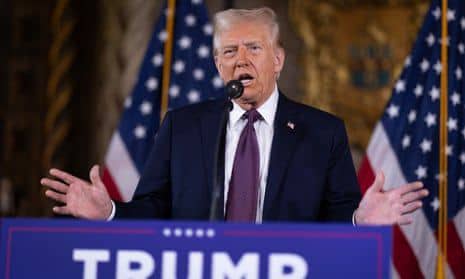U.S. President-elect Donald Trump is set to intervene to prevent a TikTok ban from taking effect this weekend, according to his incoming national security adviser, Congressman Mike Waltz. The Republican lawmaker from Florida stated that Trump’s team would “put measures in place” to ensure the Chinese-owned social media app remains accessible to its 170 million U.S. users.
Waltz highlighted that the recently passed legislation allows ByteDance, TikTok’s parent company, a 90-day extension if it makes significant progress in selling its U.S. operations. “Essentially, that buys President Trump time to keep TikTok going,” he explained. The Supreme Court is currently reviewing the law that mandates TikTok’s sale or ban, and Trump is expected to take executive action if the court upholds the legislation.
Legal and Political Challenges Surrounding the TikTok Ban
The TikTok ban stems from national security concerns, with U.S. lawmakers arguing that the app could be used by the Chinese Communist Party to collect data on American users. Congress passed a bipartisan law last year requiring ByteDance to divest TikTok’s U.S. assets or face a ban. The law does not explicitly forbid the app’s use but would prevent Apple and Google from offering it in their app stores, effectively crippling the platform over time.
Despite previously supporting a TikTok ban during his first term, Trump has now shifted his stance. Reports suggest that he has invited TikTok’s chief executive, Shou Zi Chew, to attend his presidential inauguration, signaling a possible compromise. Meanwhile, the Biden administration, in its final days, is also exploring ways to delay the ban’s implementation, according to NBC News.
Potential Executive Action and Supreme Court Ruling
A day before Waltz’s statement, he hinted in a Fox News interview that Trump might issue an executive order to suspend the ban. However, the legal feasibility of such a move remains uncertain. Since the ban is based on a law passed by Congress and signed by President Biden in April, overriding it through an executive order could face legal hurdles.
The Supreme Court heard arguments from TikTok and ByteDance last week as they challenged the law’s constitutionality. A ruling is expected soon, and its outcome could determine whether Trump’s administration needs to take further action. The Chinese tech giant has consistently denied allegations of ties to the Beijing government and has refused to sell TikTok, complicating efforts to comply with the law.
Biden Administration’s Last-Minute Moves
As Trump prepares to take office, the Biden administration is reportedly considering measures to keep TikTok operational, despite having supported the ban earlier. Sources told NBC News that the White House has explored options to defer the ban’s enforcement, allowing for more time to negotiate a resolution.
The sudden urgency surrounding TikTok’s fate underscores the broader geopolitical tensions between the U.S. and China. While Trump’s latest position aligns him with many younger voters who use the platform, it also raises questions about his evolving stance on Chinese tech companies. Whether through legal battles, executive action, or political maneuvering, TikTok’s fate in the U.S. remains uncertain as both administrations attempt to navigate the controversy.
What Happens if TikTok is Banned in the United States?
If TikTok is banned in the U.S., the most immediate impact would be its removal from major app stores like Google Play and Apple’s App Store. This means new users wouldn’t be able to download the app legally, and existing users would no longer receive updates. Over time, this could lead to increased security risks, as unpatched vulnerabilities could expose users to potential cyber threats.
However, those who already have TikTok installed might still be able to use it—at least initially. Without regular updates, though, the app’s performance would degrade, becoming slower and potentially unusable. Some users may attempt to bypass the ban by using VPNs (virtual private networks) to access TikTok servers outside the U.S., but this method comes with legal and technical challenges. The government could also take more aggressive steps, such as blocking TikTok’s web infrastructure within the country, making it even harder to access.
Could Trump Reverse the Ban if He Becomes President?
The political landscape surrounding TikTok’s fate remains uncertain, especially with former President Donald Trump opposing the ban despite his previous efforts to regulate the app during his presidency. Trump has publicly criticized the bipartisan bill that could lead to TikTok’s removal, arguing that banning the app could hurt young voters and benefit rivals like Facebook. If he returns to office in January 2025, he may seek to reverse or modify the law to allow TikTok to continue operating under specific conditions.
TikTok CEO Shou Zi Chew is reportedly planning to attend Trump’s inauguration, signaling potential lobbying efforts to keep the platform running. If the courts uphold the ban, however, reversing it would require legislative action or an executive order altering its implementation. Meanwhile, competitors such as Instagram Reels, YouTube Shorts, and Snapchat stand to gain from TikTok’s uncertain future, potentially reshaping the social media landscape in the U.S. for years to come.














